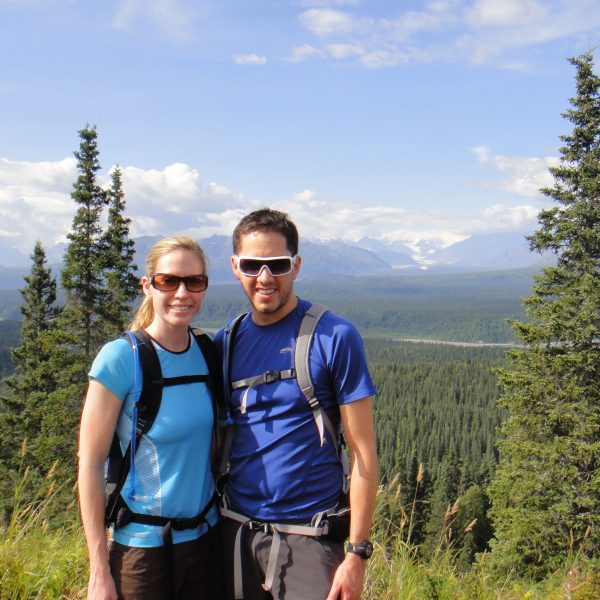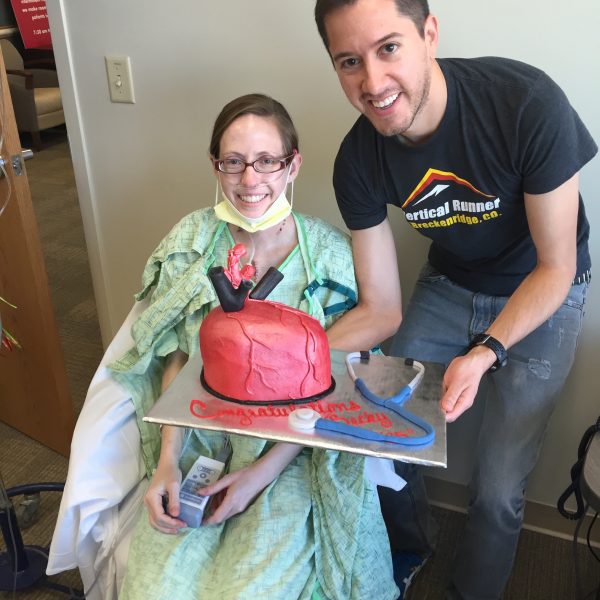Question: Is a young woman who ran Division I collegiate track, maintained a healthy diet and never tried even one puff of a cigarette immune from suffering a heart attack? I thought so but at the age of 34, I nearly lost my life to a cause of heart attack, Spontaneous Coronary Artery Dissection (SCAD).

On Black Friday 2014, while vacationing with my husband in Breckenridge, CO, celebrating our 5-year wedding anniversary, I felt an uncomfortable tightening in my chest and tingling down my left arm. Because my symptoms subsided by simply chewing two aspirin, I thought, “No need to make a big deal of this and ruin the final days of our vacation.” Two days later, the same symptoms woke me from sleep. I went in the bathroom, closed the door and sat on the edge of the bathtub hoping my “strong, healthy” body would resolve my symptoms. The symptoms did not go away.
My husband insisted we go to the ER—a decision that undoubtedly saved my life.
The ER doctor informed my husband and me that based on slight abnormalities in my EKG and troponin levels, I needed to be taken by ambulance to Denver for further testing. We both welled up in tears, finally acknowledging something was wrong, yet we also wanted to be strong for the other person. In that moment the thought of losing my consistent health shattered my vision of our future.
I wish we had known there are a number of types of heart disease completely unrelated to the typical risk factors. Case in point, SCAD is not caused by cholesterol plaque.
The following day I suffered a third and nearly fatal heart attack during a routine cardiac catheterization test. All three main coronary arteries presented multiple tears or dissections in the inner lining. Doctors transferred me across town via helicopter to a hospital with the experience and technology to save my life. There it became clear I would need a new heart to live. My husband begged doctors to wake me so he could say all the things he wished he had said before I went in for that final test.

After 13 days in the hospital kept alive by machines, we received news of a matching heart. I wanted to shout from the mountain tops that God had answered our prayers. There was still a future for me here, for us here.
I may not fit the typical image of a heart attack victim, but I fit the mold of a typical SCAD survivor. The cause or causes of SCAD are unknown and survivors live with the ever-present stress in knowing there is nothing we can do to prevent reoccurrence. Despite this lack of control, living a healthy lifestyle helped me survive and now thrive with my donor heart.
I encourage women to always know and trust their source of hope in order to stand resilient in the face of life’s many challenges.
I will never know if the outcome would have been different had I sought immediate medical attention. However, delaying treatment likely sealed the fate of my heart. I am now on a mission to raise awareness regarding the prevalence of heart disease in women, the importance of seeking medical attention at the onset of symptoms and the need for targeted research. It is my hope that someday the “S” for Spontaneous in SCAD is abolished because we know the cause, or causes, and can prevent dissections of the coronary arteries.
Becky Pomerleau is a board member of SCAD Alliance, a nonprofit organization dedicated to improving knowledge and cooperation among health care professionals, SCAD patients and their families.